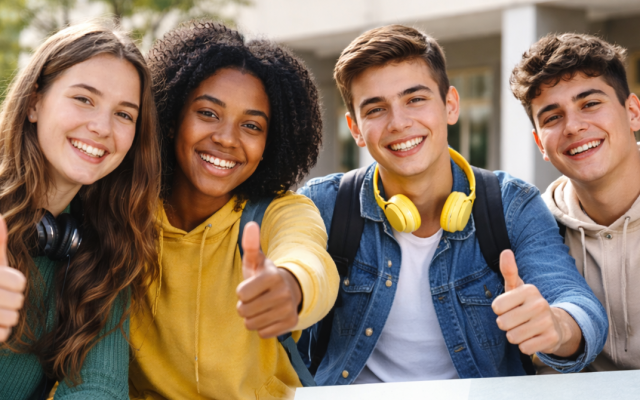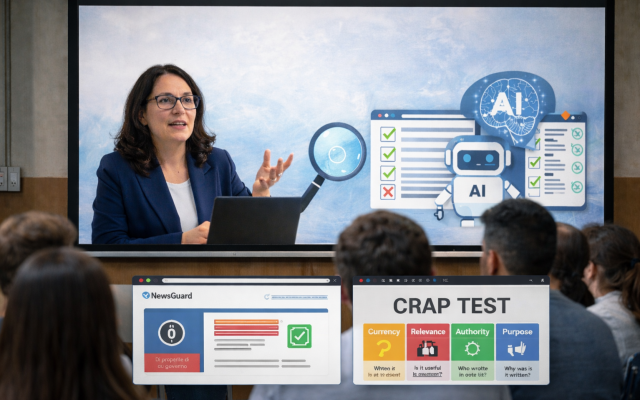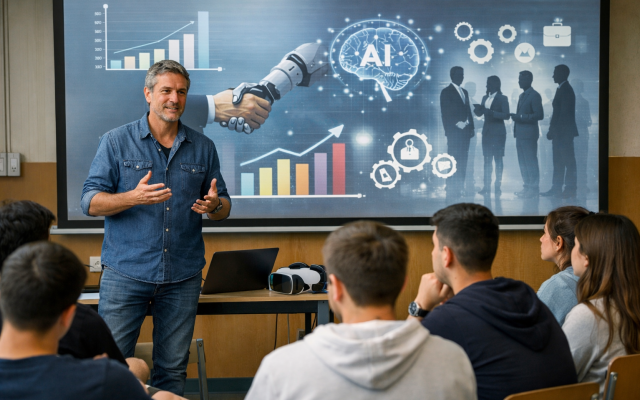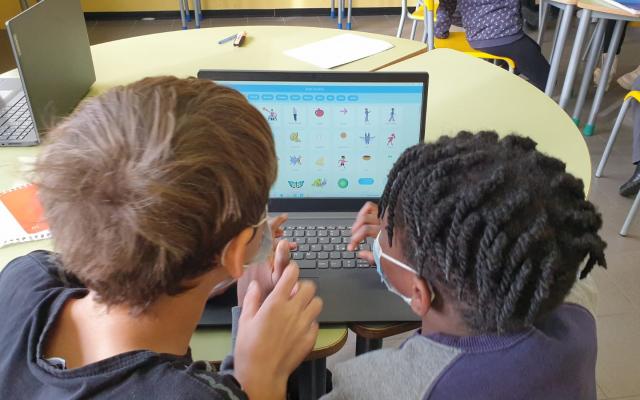Annual ANP Conference addresses the educational challenges.
The annual conference of the National Association of Public Managers and Professionals in Schools (Rome, Oct. 8-9, 2024) that has just ended saw us present both as visitors and speakers. “The sensation is that we participated in a stimulating event in which individuals with responsibilities for Italian school debated serenely on the great challenges facing us together with scholars and new technology experts,” says Onelia Onorati, press officer for the Fondazione Mondo Digitale. “Emotions, Neuroscience and Learning: Proposals for More Efficient Didactics” was the significant title of this year’s edition.
Alfonso Molina, our scientific director, participated in a round table (Oct. 9, 15:00) with Stefano Moriggi, Professor of Digital Citizenship and Director, PLAiCE, University of Modena and Reggio Emilia; McLuhan Foundation (Toronto); Mario Pireddu, Professor of Technology for Education and On-line Learning, University of Tuscia, Viterbo; Maria Ranieri, University of Florence, Professor of General Didactics and Special Pedagogy, Director of the Education Technology Laboratory ; Renata Maria Viganò, President, SIRD, Professor of Pedagogy, Catholic Sacred Heart University. Università Cattolica del Sacro Cuore.

“The present, which is characterised by a rapid digital acceleration and global challenges such as climatic change and an ageing population, requires systemic and collaborative answers,” points out Alfonso Molina. “This is what we tried to do with Project Smart&Heart Rome: provide systemic solutions to change by involving all social components in active collaboration. Technology must be integrated with what already exists through a cultural process. In the seven areas in which the programme is implemented, we developed Innovation Gyms based on the principle that sustainability is a holistic concept that concerns individuals, the planet, and all of society.”
Stefano Moriggi, paraphrasing Plato, highlighted that a cultural approach overcoming stereotypes and extreme behaviour is necessary to adopt innovation. “More than placing mankind at the centre, we must understand that our lives and relations must be reviewed. Indeed, the Copernican Revolution taught us that man is not necessarily at the centre of everything. We must keep in mind the wellbeing of the entire planet.”
A large part of the debate was dedicated to the relation between teaching and artificial intelligence: “the polarisation between massive adoption and refusal to use AI must be overcome. As for all new media, AI is currently demonised, as once were cartoons, television, … However, the role of school is to reflect and study all new technology to understand it without fearing it. We must allow students to understand how AI works and how it differs from mankind,” declared Mario Pireddu.
Maria Ranieri, in videoconference, addressed design in didactics that “drives us to conceive interesting and pleasing content for schools. It’s the object of learning design: stimulating teacher’s to study now to increase student involvement. Nowadays, classrooms must increasingly be conceived as labs.”
Maria Viganò emphasised continuous learning as a key to allow teachers to understand cultural challenges and give renewed dignity to their role in our country.
The day – indeed, the entire conference – concluded with an institutional debate opened by Antonello Giannelli, ANP President, who identified possible interpretative keys. “All the stimuli provided by this two-day conference converge towards the idea that school must overcome the old rules, an antique one-hundred-year-old conception riddled with issues, such as school dropouts.
MP Maria Elena Boschi placed the accent on the lack of autonomy experienced by school administrators, who would suffer a partial reform: “Administrators must be servant leaders, they must guide both the school and social community. We cannot think that school alone can make up for issues at home, in society, at Church. It must be integrated into a collaborative system.”
“Orientation does not mean attending school fairs and roaming between stands representing universities,” explains Paola Frassineti, Undersecretary of State, “but rather developing courses that will stimulate the emergence of talent in each student.”
Valentina Aprea, Education Manager for Forza Italia, concluded the reflection by pointing out “in the parable of the wedding at Cana Jesus said that we cannot mix old and new wine. I say that we cannot simply provide school with innovative content but an old conception. We need to change route. We need to learn to use new technology because students will live in a new and different Italy. We need to education an old country like ours to transform and leave no young person behind.”




